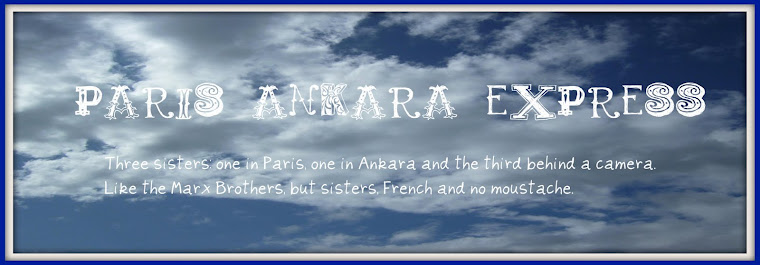Still, this all seems to be in my head only, because Universities world wide are having fights about whether or not to revise their mostly male syllabi.
Now in my branch of writing, philosophy, there's even more of a gender gap. One that's not quite ready to close yet, as men are still hogging the front line in the syllabi and the university jobs.
In my department - I'm the only woman there apart from our secretary - we teach a service course on the history of philosophy. Each semester we need to pick five texts ranging from the antiquity to the twentieth century. We have a total of between 15 and 20 texts to choose from. One was written by a woman. Now: I really don't mean to beat up on my male colleagues here. They're the ones who thought of including the female author, whom, to my great shame, I hadn't even read before. And I'm pretty sure that if I do come up with another name or two, they won't object to including them on our list. But the point is: they're hard to find.
Why is that? Well, it's harder to become a philosopher than a novelist if your education consists of your father's library and your work environment is the dining room table. For one thing, until very recently, you would have had to know Greek and Latin - Plato and Aristotle, the two Alpha boys of Ancient thought weren't translated into English until the late eighteenth century. Also, you'd have had to read some pretty recent stuff, published in reviews that maybe your dad didn't get, or didn't let you read. You'd have had to be in amongst certain circles: people who'd been to Cambridge and Oxford, and sat around in smoky dining rooms in London, late at night, or in Coffee houses while their wives and daughters were at home preparing dinner. So not the dining room table.
But that shouldn't mean, really, that we shrug our shoulders and decide that, it's a shame, but we're going to have to stick to male philosophers at least for pre-twentieth century. What it should mean is that we hunt down those few women who managed to make philosophers out of themselves despite all those obstacles, that we bring out new editions of their work, write about them and force them into the main stream where they belong, and where they should have been centuries ago.
When I was in Prato, last month, I was very fortunate to meet a group of women who do just that, who spend their hard earned research time and money finding out about obscure women thinkers that nobody has heard about. This is time and money they could spend working on some trendy, mainstream topic that would advance their career a lot more. I wasn't really one of them. I was presenting a paper on Mary Wollstonecraft. She's not exactly mainstream in philosophy, but at least, some people have hear of her, and of her Vindication of the Rights of Woman. But she's not half as well known as she ought to be. So I too am trying to do my bit by writing an introductory textbook on her work, something for undergraduates students to read. I hope that will make a difference.
Don't get me wrong, I love Plato, and am quite fond of Aristotle. But I sure wish that Diotima, who was Socrates' teacher, Aspasia, who was reputed to write Pericles' speeches for him, Axiothea, who studied in Plato's Academy, Hipparchia the cynic, Hypatia, the neo-Platonic philosopher of Alexandria, and many others beside had gotten their act together and written a treatise or two. Except they probably did. But who, in the Ancient world, would look after the works of a woman as carefully as they would that of a man who was also a famous teacher in his own school? What monk would spend his precious ink copying, illuminating, translating the words of a woman who was possibly a prostitute and at very least disobeyed her parents? So any papyrus or parchment that may have been out there is now long turned to dust. And a long stretch of the history of philosophy is forever male. That is sad.
 |
| Hypatia of Alexandria |
Oh, one last thing. If you liked this post, would you mind terribly clicking on the RSS feed, here, or the Google connect buttons (top left), or by email at the bottom of this page? And if you didn't like it, you might still want to look around. There's three of us, you know, so you're (almost) bound to find something you like. And then, if you've still got time, you could share this post or stumble it, or both and get in touch with your local tv station to sing our praises. We'll love you forever.

2 comments:
Interesting post. Strange how in some ways you could consider philosophy an "art" rather than a science, which would traditionally attract more females.
What proportion of your students now are female? Just wondering whether this is something destined to continue repeating or not!
There's a lot more women studying philosophy now,both at undergraduate and graduate level - but somehow, the parity doesn't quite make it to the top: there's a lot more male philosophy teachers than female. I think it's in great part to do with the culture which sees philosophers as free thinkers,i.e. unfettered by such things as bedtime, school runs, etc. But of course, as more and more men come to understand and accept their responsibilities as fathers, the academic world is becoming a better environment for women too. So I'm hoping that in ten years or so, a lot more of my colleagues will be women!
Post a Comment